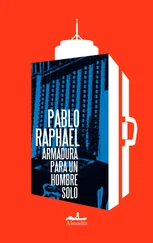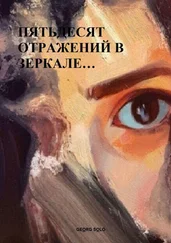‘Just so you know who your friends are. After all, we only want the truth. If he’s doing nothing wrong, he has nothing to fear.’
They left him without farewells, and Ulrich began to shake. He sat down to steady himself.
When he went back upstairs, his mother was gulping vodka.
‘What did they want?’ she asked.
He stared at her, and felt a sudden distaste. He realised he could not remember the last evening she had been sober.
Ulrich began to wait behind in the evening for Comrade Denov to leave the factory so he could look through the accounts in his office. The ledgers were piled up on a shelf behind the bust of Todor Zhivkov, where anyone could find them.
The gaps between the pages were stuffed with receipts and torn-off notes, and Ulrich frowned with disapproval. It was difficult to make sense of the hastily written columns of numbers. Other workers passed the office and looked in at him quizzically, and it took him several evenings to build up a full economic picture of the factory.
He had not lost the talents he had developed during his accounting days, and when he opened the page in the ledger where the discrepancies were revealed, he knew it instantly. The grids, the column headings, the underlined totals — all spoke clearly to him, and he knew that everyone in the factory was labouring under a fiction. He trembled as he looked through the pages, for he realised that most of their hard-won barium chloride went missing every month. The enormous sacrifices they made to fulfil the official quotas were directed, in truth, to some quite different end. Comrade Denov had deceived them all. He had betrayed their factory.
Ulrich began to file weekly reports about Comrade Denov to the secret police. He did so without hesitation or doubt. He wrote his reports carefully, giving evidence for each of his assertions, and footnoting every number and quotation as if it were a thesis. Every week, when he set out to deliver his envelope, he held his head high with conviction.
22
ULRICH AND HIS MOTHER were selected for an apartment in Zapaden Park, the miraculous new scientific housing project in the west of the city. Elizaveta was baffled as to how it could have happened to a political outcast like her.
The mighty development was not even complete when they moved in. The forest had been cleared, and the towers rose out of a swamp: white, and repeating endlessly to the sky. The roads were still just sketches in the mud, and the grind of great machines became a roar whenever a window was opened, even from their tenth floor. New turf was already laid in places, like felt over the wasteland, and naked twigs were propped up in the expectation, one day, of trees.
Journalists visited to report on the modern living, and famous artists came to prepare paintings of the fury from which peace and harmony are born.
Ulrich was not happy with the new communal living, where there was no escape from talking, prying people. He walked down the stairs to avoid the lift, but on his ascent he regularly found himself confined with neighbours, whose sociability he tried to repel by counting the passing floors through the ribbed glass, or concentrating on the spoiled shine of his shoes. He closed the curtains at home, preferring twilight, for he could not bear the pressure of the thousand panes of glass staring in.
Elizaveta followed him around, opening them again, for the sparkling altitude made her gleeful. She sat on the balcony on sunny afternoons: she liked the views of children playing on the swings, and the people coming and going, and the interiors of the opposite apartments. She bought a reproduction of Leonardo’s Last Supper to hang above the dining table, lined the windows with potted plants, and hung up a birdcage. She became a propagandist for modern facilities , commenting joyfully on the hospital downstairs, and the pharmacy, and all the other new things she found such a comfort in her old age.
Zapaden Park seemed ignorant of Elizaveta’s compromised past, and at this late stage in her life she seemed suddenly unburdened. She sat in her headscarf chatting on the benches that lined the paths downstairs, and when she was in her kitchen she left the front door ajar, so that visitors could walk in whenever they wished. She was always surrounded by people drinking and laughing, and Ulrich returned home with trepidation.
When he bought a stereophonic record player, which cost him months of savings, she invited an artistic neighbour to give his opinion on the sound, and he came with his friends, the kind of people Ulrich hated, who had gathered at the Café Bulgaria and written revolutionary poetry when they were young, and now were comfortable and arrogant, and gave meaningless speeches at the Writers’ Union that were printed in the newspaper. They inspected the new acquisition, without emotion, and one of them, who was a decorated poet, said to him gravely,
‘No one needs stereophonic sound in Bulgaria, my friend.’
And Ulrich said Why ? already dreading the answer, and the poet said,
‘Because we already hear the same information from every side!’
They all laughed at the joke, one woman coughing on her cigarette, but Ulrich did not find it funny. These people had their fashionable suits, and sunglasses as big as welders’ masks, and they affected this revolutionary cynicism when in fact they had ceased to be revolutionaries years ago, and loved their established positions.
His mother had given up her typing — or perhaps she had finished what she was writing. Ulrich did not know. Now she hosted parties at night, where her acquaintances came to drink and gamble, and she talked of nothing except entertainments. She began to brew brandy, and she made garish, extravagant clothes to wear. She bought a pair of sunglasses in imitation tortoiseshell that cost half their monthly rent, and she wore them indoors when her friends came. She spent Ulrich’s money on foolish things, though she had always been prudent with money; she played the hits of Pasha Hristova on his stereo. She kept moving the furniture, so that nothing was in its right place when he came home, and it drove him to fury.
‘Are you a blind man?’ she taunted him. ‘That you are scared of bumping into things?’
With her nightly drinking, she began to lose the mornings, and Ulrich emerged from his dreams to find an empty room. He squatted on a stool in the grey hour and remembered how terrible was solitude.
Ulrich developed a friendship, without expecting it, with a woman who lived near by.
She sat next to him on the bus one day, saying she had seen him coming and going. She was not much younger than Ulrich, and had her husband and her life. She worked in a printing press, and her name was Diana.
He made her curious, she said, for he seemed so private. She spoke about the way she felt and how she saw things. Ulrich talked about chemistry, telling her stories of what was now possible. She listened to him while the bus growled between stops.
He was walking home one evening when she saw him on the path and called out.
‘I have something for you. Can you wait? It’s upstairs.’
He watched her walk back to her block, where the fluorescent lamps set her off for a moment before she disappeared inside. Ulrich surveyed the mute concrete, imagining the elevator passing up through the building, counting the equidistant lights as she went down the corridor, the key in the lock. She came down. She wore a long coat for the weather, and carried a plastic bag.
Inside was a magnifying glass.
‘I don’t know if it’s useful for your chemistry,’ she said. ‘But I never use it myself.’
When they met, they walked together, and it became a routine. Talking to Diana was a relief from the trials of Ulrich’s home. He was growing old himself, and he mostly found it difficult to concentrate on other people’s conversation. But with her everything was fresh, and pregnant again. Though he told himself that their friendship meant little, he could feel his anticipation rise each time their rendezvous approached.
Читать дальше
Конец ознакомительного отрывка
Купить книгу












